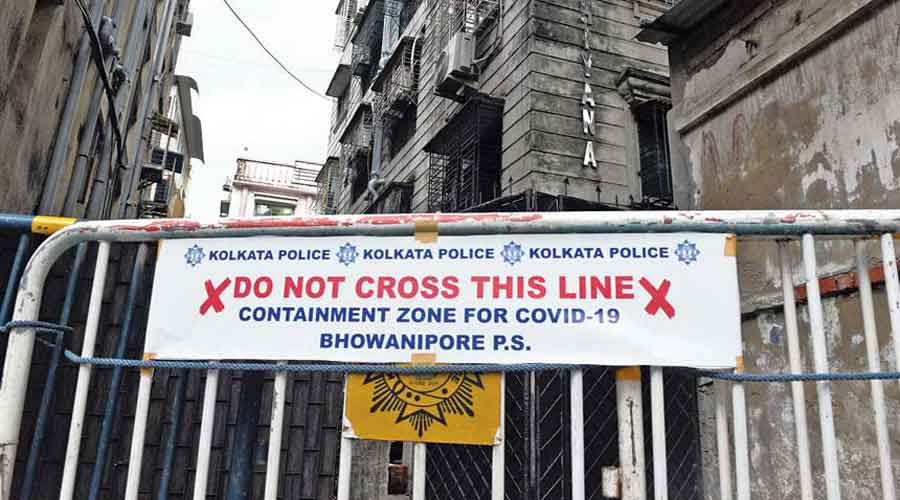The Centre is set to revoke the provisions of the Disaster Management Act, 2005, for Covid-19 control, effectively lifting penal options, but face masks, hand hygiene and graded public health responses tailored to local epidemic patterns will have to continue.
The National Disaster Management Authority (NDMA) has decided that in view of the overall improvement in the Covid-19 situation there may not be any need to invoke the provisions of the act, Union home secretary Ajay Bhalla has said in a note to all the states.
But the Union health ministry’s advisories on Covid-19 containment measures, including the use of masks, hand hygiene and “prompt and proactive action (by states) at a local level” will continue to guide the national response to the pandemic, Bhalla’s note says.
The home ministry had invoked the act on March 24, 2020, as part of the national response to Covid-19 and has since then issued several orders to curb the spread of the coronavirus, strengthening controls amid rising infections and relaxing them as infections fell.
The act provides for civil and criminal liabilities for breaches of the prescribed orders.
Over the past two years, the country has developed “significant capacities” to respond to the pandemic through diagnostics, surveillance, contact-tracing, treatment and vaccination, Bhalla wrote, explaining the backdrop to the NDMA decision to revoke the Disaster Management Act.
India’s counts of daily new infections have declined sharply since the peak of the country’s third Covid-19 surge on January 20.
Health authorities on Wednesday recorded 1,778 new cases over the previous 24 hours. The daily counts have remained below 2,000 since March 20, the first time since May 1, 2020.
Bhalla’s note has asserted that precautions such as face masks and hand hygiene will need to continue and has underlined the health ministry’s call on states to maintain vigil and initiate prompt public health measures if any surge in infections is detected.
The home ministry’s last order issued on February 25 this year had, for instance, urged states to follow the health ministry’s February 18 advisory that called for “evidence-based decision making” at the district level, relying on two key parameters — the local test positivity and bed occupancy rates.
“At the district level, there should be constant review emerging of data of new cases based on a sustained and critical level of testing to facilitate evidence-based decisions on restrictions and relaxations,” health secretary Rajesh Bhushan said in a note to all states on Wednesday.
The health ministry has recommended that districts consider restrictions if their test positivity rates rise to 10 per cent or higher over a week or if their oxygen bed occupancy rates rise beyond 40 per cent.
Some infectious disease specialists believe that India is either close to or within the endemic phase of Covid-19 — marked by a trickle of daily cases as the virus continue to infect susceptible people in the population. But this could change if the virus mutates significantly












